Disclosure: Meeple Mountain received a free copy of this product in exchange for an honest, unbiased review. This review is not intended to be an endorsement.
In 2016 KOSMOS and Phil Walker-Harding released an Egyptian themed game called Imhotep. It received an official nomination for the Spiel des Jahres board game award and immediately captured the attention of hobby gamers and has gone on to become well-loved and respected. In the years since Imhotep’s release, KOSMOS published a full expansion and a number of mini-expansions. In 2019 a two-player version of Imhotep was released, this one received “Recommended” status in the Spiel des Jahres awards. Imhotep: The Duel reimagines and distills down the original gameplay from its big sister, and offers some clever tactical choices, along with a streamlined play time.
Imhotep: The Duel Overview
In Imhotep: The Duel players are trying to win the game by unloading ships from a shared waterfront and earning points by collecting goods of six different types.
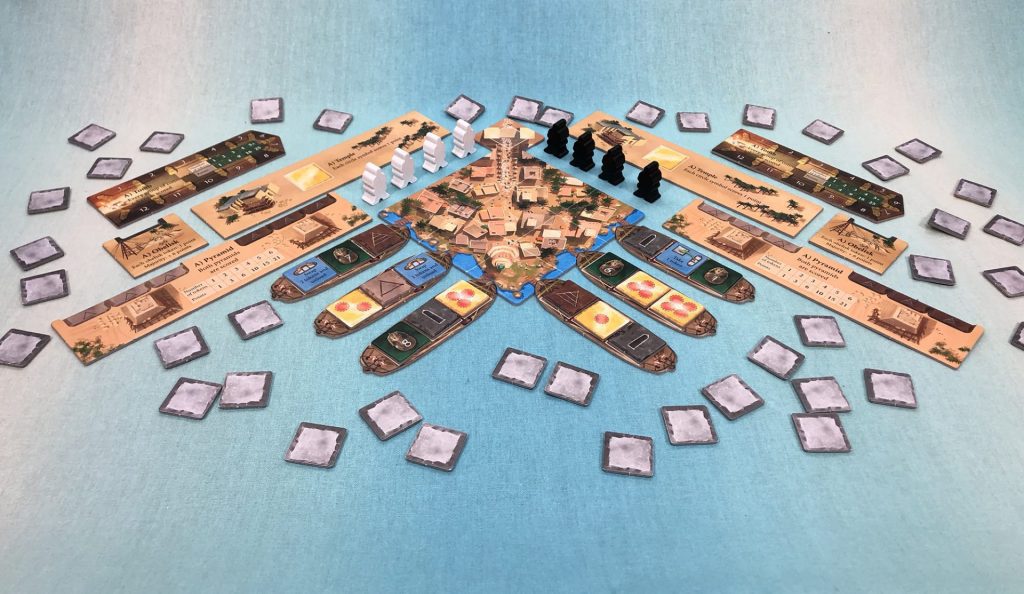
Ships are selected by placing workers in a 3 x 3 grid, then unloading a ship when its row or column has at least 2 workers.
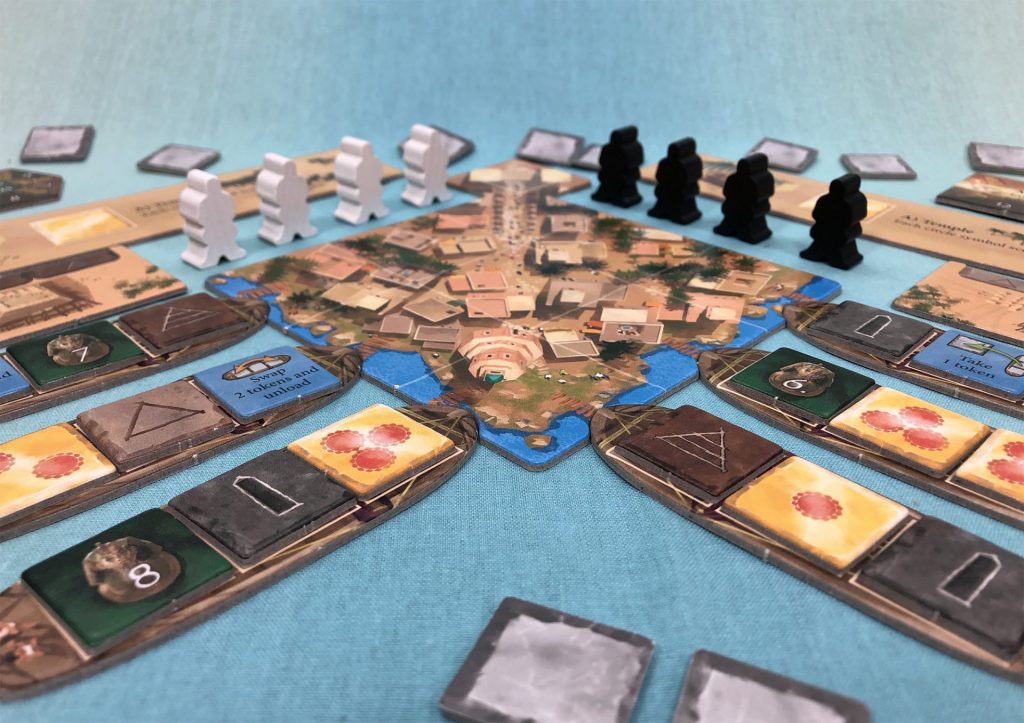
Ships are reloaded immediately, unless there aren’t enough goods remaining in the supply, in which case the ship is set aside. Once all but one ship has been unloaded the game ends. Players tally up their points, and the player with the most points is the winner.
Individual Player Boards
Imhotep: The Duel breaks the mold of the original in a number of different ways, but the most obvious is that instead of playing a shared set of scoring boards, each player now has their own matching set of 4 boards. As in the original, each board scores in different ways, but unlike the original they all score at the end. This can make it more challenging to know just how the other player is doing. Just like in Imhotep, each scoring board is double sided, each with different options and play styles. Let’s take a quick look at side A of the individual boards.
The Obelisk
Obelisk tiles are placed in a single stack on the Obelisk board. At the end of the game, each tile is worth one point, and the player with the most Obelisk tiles receives a six point bonus.
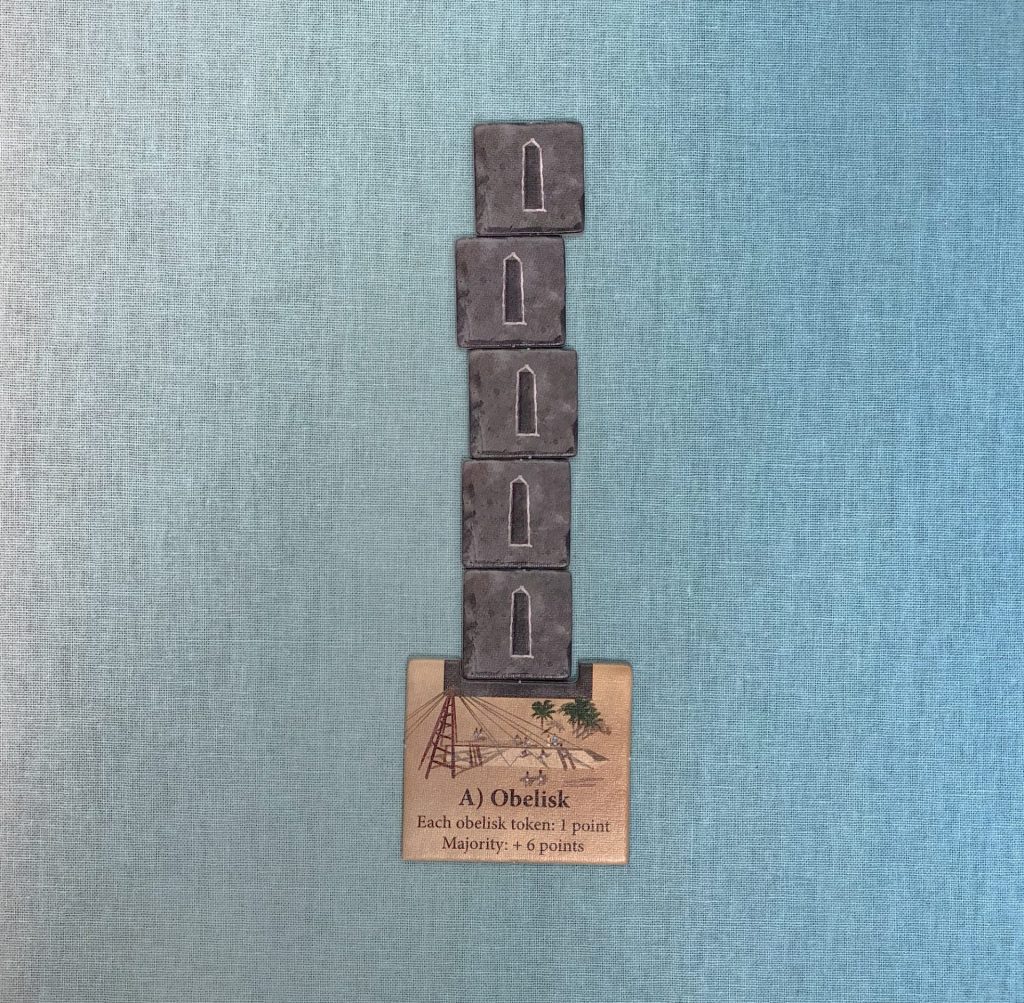
The Temple
Temple tiles are placed on the Temple board face down, and at game’s end, each red pillar marker is worth one point.
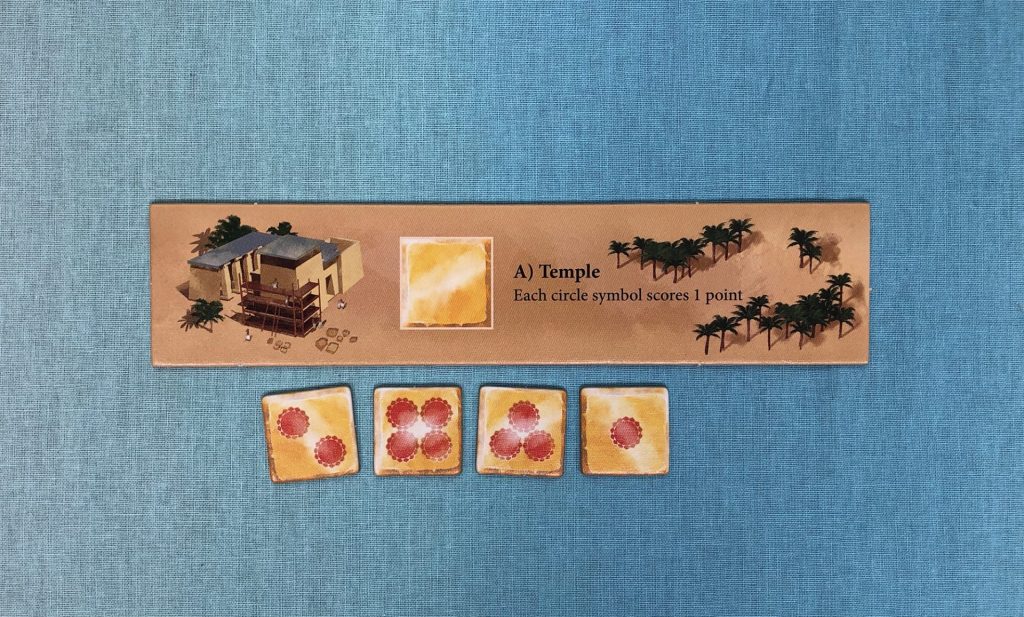
The Pyramids
Both light and dark Pyramid tiles are placed onto the same board in their respective areas. At the end of the game players will receive an increasing number of points the more tiles they have of each color. From -6 points for having zero of a color, to 21 points if a player is able to secure all 6 of the same color.
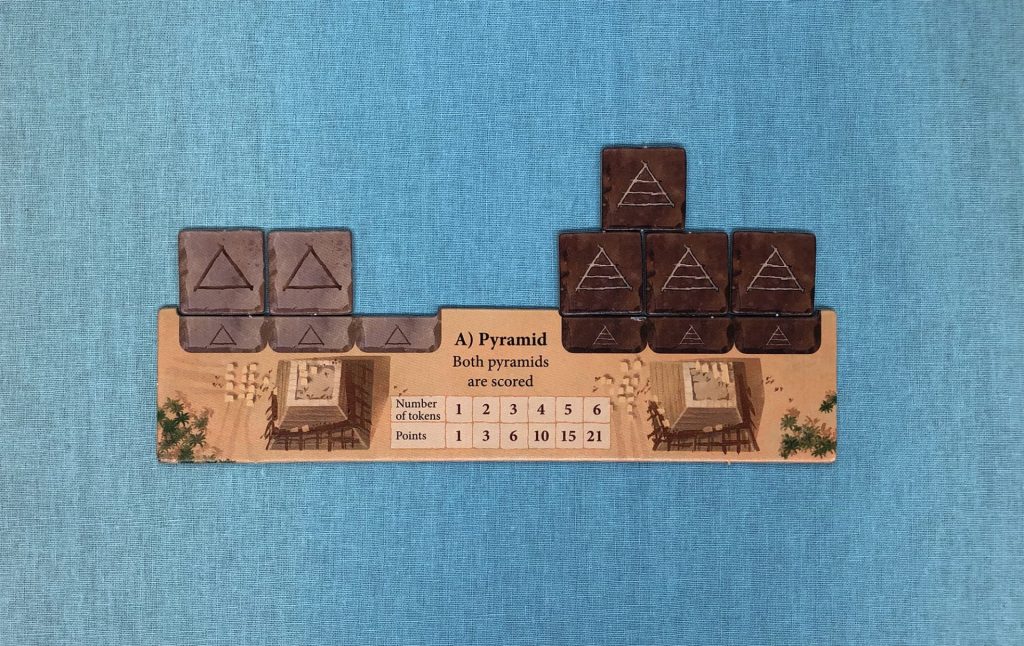
The Tomb
There are only 12 Tomb tiles, each sequentially numbered. Tomb tiles are placed into the matching numbered slot on the Tomb board. Players receive an increasing number of points based on adjacent groups of tiles. One point for a “group” of 1 Tomb tile all the way to 25 points for having a group of 5 or more.
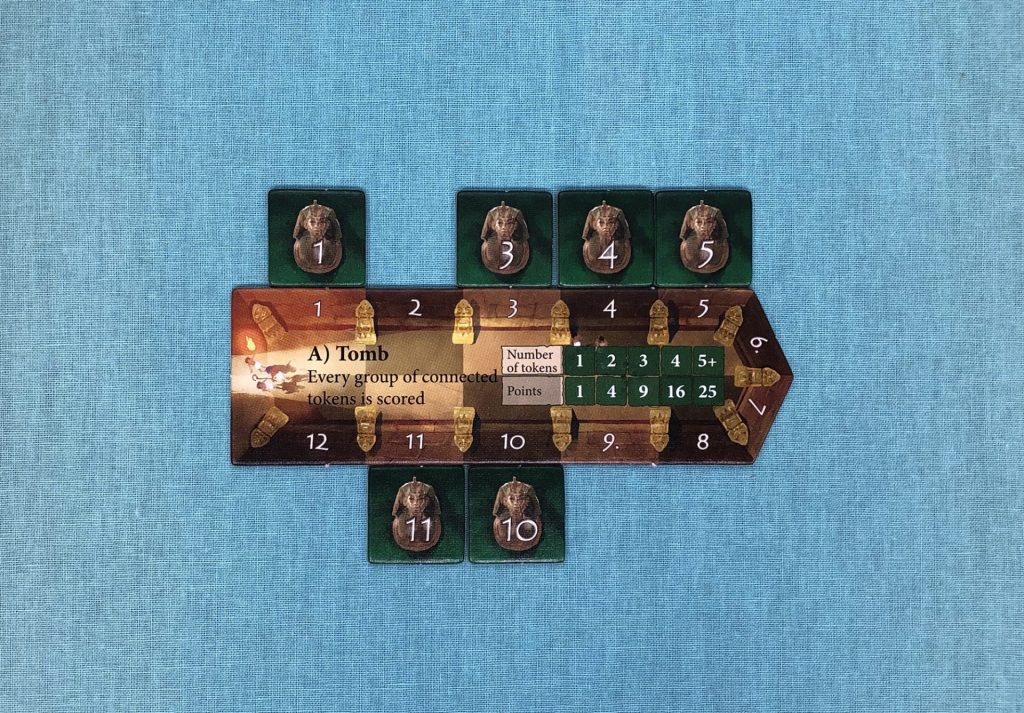
The Actions
The original game was a masterpiece in simplicity; a constant struggle to get ahead of your opponents within the limited surface area the game provided. Imhotep: The Duel brings even greater simplicity by offering only 3 possible actions to a player and allowing only a single choice per turn.
Place One Worker
Take one of your 4 workers and place it on an available space on the waterfront.
Unload One Boat
Unload a boat at the end of a row or column that has at least two workers of any color in it. Boats are unloaded from back (farthest from the dock) to front, and each meeple receives a single tile in turn.
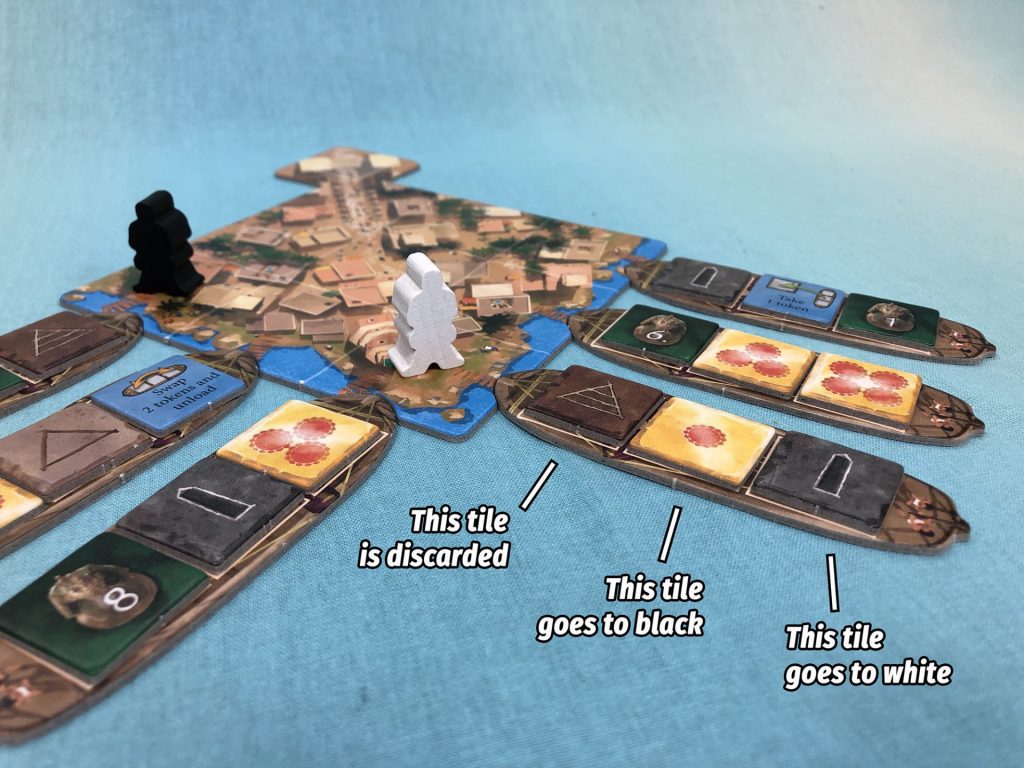
Play One Action Tile
Instead of placing a worker or unloading a boat, a player may play one of their blue action tiles. These tiles provide rule breaking actions which can allow you to do in a single turn what could take two or three turns otherwise. There’s only a few of these in the game, but their power cannot be understated.
The Action Tiles
The sixth type of tile is the aforementioned action tile. Similar to the “free action” marketplace cards, these tiles provide rule breaking actions to the person who owns them. They are:
- Place 2-3 workers in one turn
- Place 1 worker and unload 1-2 boats
- Take 1 cargo token
- Swap two cargo tokens and unload a boat
Unused action tiles are worth one point at the end of the game.
Final Thoughts on Imhotep: The Duel
Given my love of Imhotep it came as no surprise that I love this one too! Imhotep: The Duel was included in my Most Anticipated Games of Origins 2019 and Most Anticipated Games of Gen Con 2019 (thanks to some scheduling mishaps), and it was worth the wait.
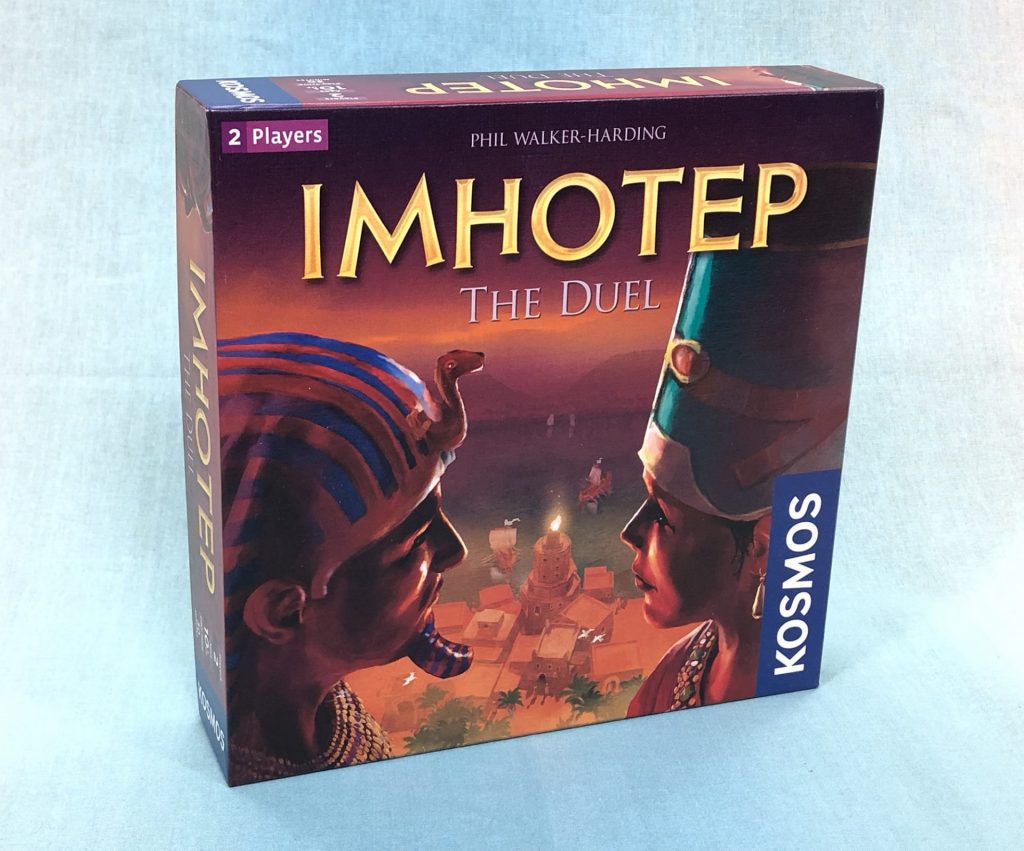
This game is everything I want a two player game to be: it’s streamlined, it’s tactical, and it’s fun! Because of the limited number of choices, it feels like every decision is important; and in an average game you might only get 15 or 20 turns. Just like in the original Imhotep, The Duel maintains a tension between placing workers and unloading boats. “If I place this worker, then on my next turn I can unload that boat”, but because the board state and your personal boards are open information your opponent can deduce what you’re going for and try to block you. Or they might be oblivious and block you simply because they have their own agenda.
And speaking of open information, it’s important to constantly monitor your opponent’s board and work to foil their efforts. Once tiles have been picked and placed, each player’s current score is open information and can be easily calculated…and where you can calculate, you can work to foil your opponent’s efforts.
Getting access to Pyramid tiles of both colors or multiple adjacent Tomb tiles can almost guarantee someone the win, so make sure you’re aware of what they’re working towards. Be aggressive about getting the Action tiles as they can quickly turn the tide. Make sure you’re clever about when to place workers and when to unload boats, and constantly be aware of when your opponent could unload in the opposite direction and undo several turns of hard work.
One of the most appealing things about the original Imhotep is what we like to call “Builders Satisfaction”; after your game is complete you’ve got a tangible thing on the table that you can look at. Imhotep: The Duel doesn’t have builder’s satisfaction like the original, but it is a satisfying game to play; and in fact has completely replaced the original game for me when playing with two people. The streamlined gameplay, the slimmer footprint and action choices, and the tense push and pull of the worker placement make Imhotep: The Duel a marvelous two player game.
If you love Imhotep and you have someone you love playing head to head, then you should run, don’t walk, to pick up this title for your collection.


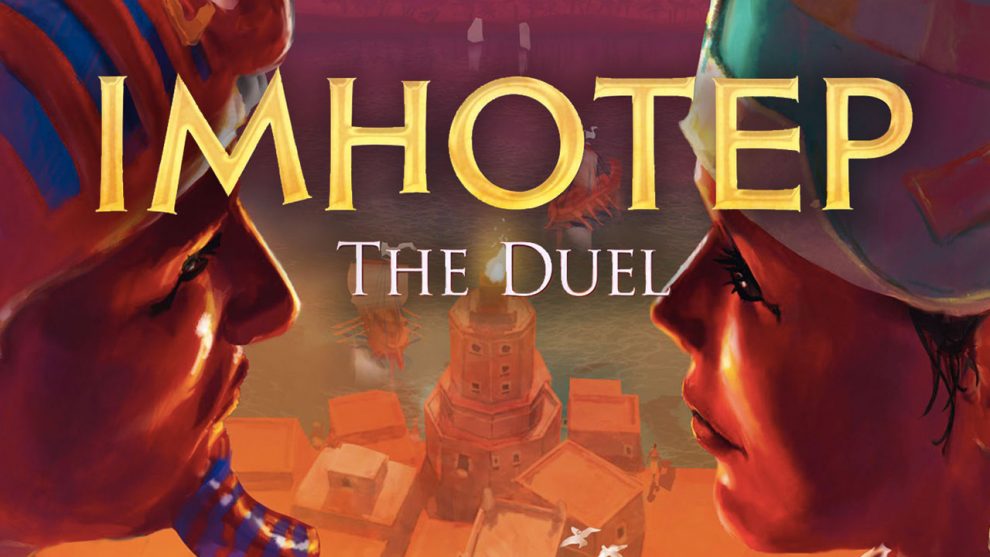



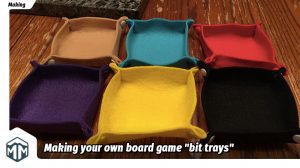




Add Comment